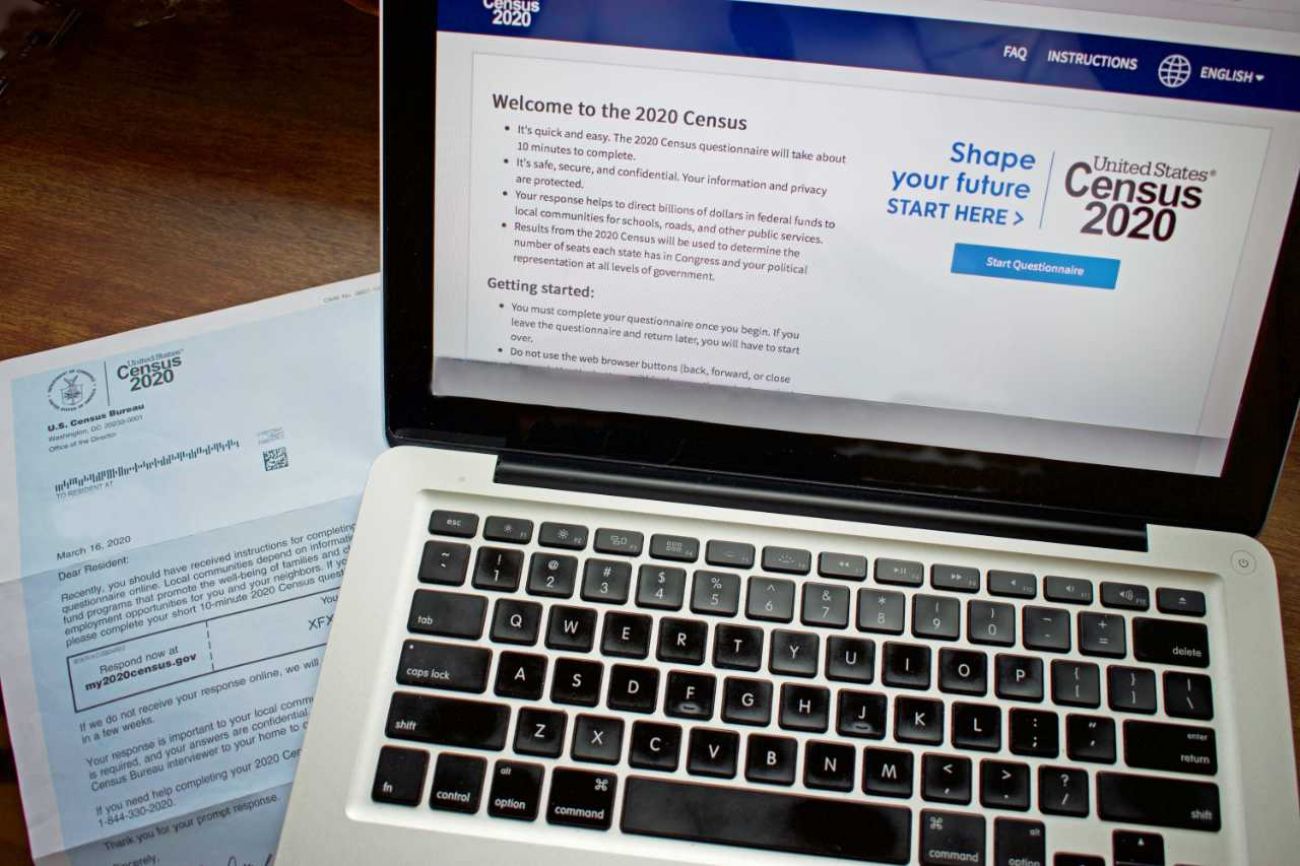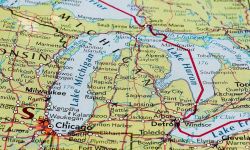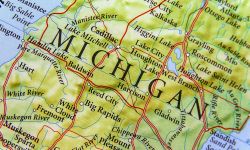Hit hard by coronavirus, Detroit gets creative to boost census counts

The coronavirus pandemic that has devastated Detroit could make it harder for the city to respond to crises for years to come.
As caseloads shrink, and city officials face the grim reality of reducing services and starting layoffs to stem a $348 million budget hole due to the pandemic, others fear that the U.S. Census will again undercount Detroit.
Funding for everything from Medicare and free lunch at schools to Head Start and roads is determined by decennial census counts. The counts help set hospital funding, and could determine how much of the coronavirus vaccine goes to communities once one is developed.
- The latest: Michigan coronavirus map, curve, chart, updated COVID-19 news
- Michigan’s latest stay-home order to allow landscaping, boating and golf
- What Gov. Gretchen Whitmer’s stay-at-home executive order means to Michigan
Mayor Mike Duggan had vowed to improve participation after Detroit had one of the nation's worst response rates in 2010, and its population fell 25 percent to 711,000. But the pandemic has upended those best-laid plans, forcing people inside and making canvassing efforts impossible.
“In spite of every effort, [it’s likely] there will be an undercount in the city … and the anticipated undercount will serve to exacerbate funding decreases over the next decade,” said Kurt Metzger, a demographer and mayor of the nearby suburb of Pleasant Ridge.
“You have to ask yourself ...‘why can’t Detroit get a break?’” he added.
Census outreach efforts were underway before Detroit became a national hotspot for the coronavirus, which had infected nearly 9,000 residents and killed more than 1,000 as of Wednesday.
Now, Detroit’s Census participation rate, 42 percent, is behind the averages nationwide (53 percent) and in Michigan (60 percent). Detroit has other disadvantages, including nearly 40 percent of homes that lack reliable internet.
City officials say they are doing their best to improvise to prevent an undercount, since each person counted in the census is worth $1,800 in federal funding.
“COVID is making everything more of a challenge than it was before,” said Victoria Kovari, executive director of Detroit’s multimillion dollar 2020 Census Campaign.
“We've got a strategy and a plan that is constantly making adjustments,” she added. “And I feel pretty confident that we're going to reach our goal.”
There’s still time.
Because of the coronavirus, the Census Bureau is seeking an extension from Congress to deliver the final count in April 2021 rather than December. Outreach efforts that were halted in March could resume June 1, while the self-response deadline has been extended to Oct. 31 from the end of July.
‘It’s definitely impacted the count’
Social distancing and Michigan Gov. Gretchen Whitmer’s stay-at-home order forced Kovari’s team to completely rethink its census outreach strategy nearly overnight.
Ninety promotional events were canceled and replaced by a virtual phone bank conducted by the city’s census captains. More than 150 churches had signed up to promote the census to their parishioners.
With those plans on ice, Kovari said the city is distributing census information on cards through aid programs like Gleaners Community Food Bank, Meals on Wheels and the Area Agency on Aging.
The new outreach aims to include Detroiters without internet access as social distancing converts many in-person events (like census town halls) to online gatherings.
To overcome the divide, the city created desktop promotions at library computers and career centers that residents can no longer access.
Detroit also installed census response stations near public kiosks where residents can pay bills, which residents can no longer safely touch.
COVID is making it harder for residents to respond via phone or mail too.
Some wait times at census phone lines have increased as social distancing cuts call center capacity. Kovari said “the paper processing has slowed to a trickle” as postal disruptions interrupt the delivery and return of census forms.
“It’s definitely impacted the count, especially for a city that had a huge amount of people submitting paper forms in the beginning,” Kovari said.
Metzger, the demographer, said social distancing will make it harder to remind residents to complete the census, especially amid a pandemic.
“Without a steady stream of publicity, coupled with the loss of community internet access points, and a virus that is focused on persons of color where the social determinants of health are abysmal, the census is very low on the priority list,” Metzger wrote to Bridge in an email.
Less money from CARES Act?
If anything, the federal response to the pandemic underscores the importance of accurate census counts.
The Coronavirus Aid, Relief and Economic Security Act, known as the CARES Act, used census counts to dole out aid to communities, distributing $1.5 billion for states and 171 local governments, including Detroit, to cover COVID-19 expenses. (Only local governments with a 2010 census count above 500,000 are eligible for the program.)
“Congress divided that money proportionally to the state’s population size, so it was more or less a per capita allocation” based on estimates using 2010 census data, said Reynolds Farley, a researcher and lecturer at the University of Michigan who teaches a class on the history of Detroit and currently serves on two Census Complete Count Committees.
“But if they started with a number that was 100,000 too short in 2010, that would carry over….I think it's about $450 million Michigan would have lost because of undercount.”
Census counts also were used to distribute medical equipment to respond to the coronavirus from the Strategic National Stockpile. That left hard-hit areas like Detroi with fewer face masks and ventilators per patient than areas with fewer cases.
Door-knocking in a pandemic
Kovari, Detroit’s census director, said she hopes the city can continue to be creative to help improve responses amid the pandemic.
But the city faces another major hurdle this fall, at the end of the self-response period, when the Census Bureau will have to send people door to door to count any house that hasn’t already responded.
As late as January, the Bureau planned to hire more than 1,000 people in Detroit alone.
The Census Bureau plans to provide personal protective equipment for door knockers. It will follow any public health recommendations from the U.S. Centers for Disease Control and Prevention to ensure worker safety, said Marilyn Sanders, regional director for the Census Bureau’s Chicago region which includes Detroit.
Whether the promised precautions will be enough to persuade people to go door-knocking remains to be seen.
“Now, to be sure there are a lot of unemployed people who would probably be happy to earn $21 an hour knocking on doors for the Census Bureau,” said Farley.
“But many of us who are signed up already are going to be reluctant to go out in the midst of this pandemic and knock on doors… I can [also] imagine a lot of homeowners see a stranger at the door and they would never open their door in this era of the pandemic.”
RESOURCES:
- Hey, Michigan, here’s how to make a face mask to fight coronavirus
- Michigan coronavirus dashboard: cases, deaths and maps
- Michigan families can get food, cash, internet during coronavirus crisis
- How to give blood in Michigan during the coronavirus crisis
- 10 ways you can help Michigan hospital workers right now
- Michigan coronavirus Q&A: Reader questions answered
- How to apply for Michigan unemployment benefits amid coronavirus crisis
See what new members are saying about why they donated to Bridge Michigan:
- “In order for this information to be accurate and unbiased it must be underwritten by its readers, not by special interests.” - Larry S.
- “Not many other media sources report on the topics Bridge does.” - Susan B.
- “Your journalism is outstanding and rare these days.” - Mark S.
If you want to ensure the future of nonpartisan, nonprofit Michigan journalism, please become a member today. You, too, will be asked why you donated and maybe we'll feature your quote next time!




